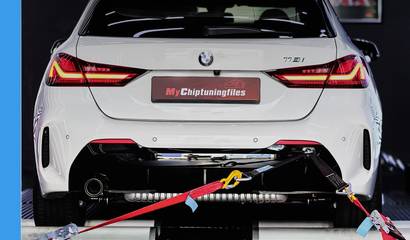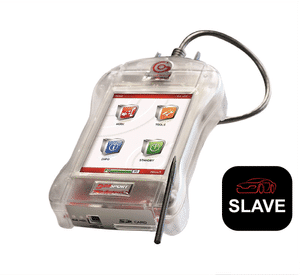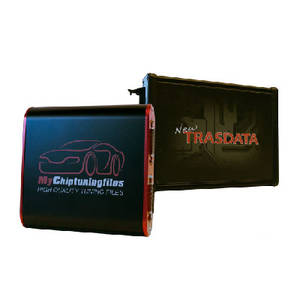Sunday 16 November

Let’s get one thing straight right off the bat—car tuning isn’t just for the Fast & Furious crowd or people who throw flames out their exhaust pipes. Tuning your car is all about getting the most out of what you’ve got, whether that means shaving a second off your 0-60 time, getting better fuel economy, or just making your ride feel more responsive and fun to drive.
So yeah, you don’t need a race track or a turbo kit the size of your head to get into tuning. You just need to know what’s possible—and what makes sense for your setup.
This is your ultimate guide to car tuning. No fluff. No hype. Just real talk about how to boost performance, efficiency, and maybe even squeeze a bit more life outta your car.
First Off: What Is Car Tuning?
Alright, let’s define the thing before we start messing with it. Car tuning means making changes to your vehicle—mechanically, electronically, or both—to improve performance, efficiency, handling, or just the overall driving experience.
Tuning can be simple, like changing your air filter to a high-flow one. Or it can be complicated, like reprogramming your ECU, installing a bigger turbo, or replacing your fuel injectors. It really depends on your goals and how deep you’re willing to go.
In short: if you’re making your car run better than it did when it rolled off the factory floor, you’re tuning it.
Why People Tune Their Cars
There are three main reasons folks dive into tuning:
- More Power – Everyone loves more horsepower. Whether it’s to win races or just pass trucks on the freeway without breaking a sweat, tuning for performance is huge.
- Better Fuel Economy – This surprises some people, but yeah, tuning can help your car burn fuel more efficiently. That means more miles per gallon if you’re doing it right.
- Improved Response and Driveability – Your car might feel sluggish, or like it’s not using its full potential. Tuning can fix that and make it way more fun to drive.
Also… bragging rights. Let’s be honest. There’s nothing like popping the hood and knowing it’s not stock under there.
The Core of It All: ECU Tuning (aka Remapping)
If there’s one thing that’s at the heart of modern tuning, it’s the ECU—the Engine Control Unit. It’s the computer that tells your engine how to behave. And it’s smarter than you think.
ECU tuning or remapping means tweaking the software in that little box. You're adjusting parameters like:
- Fuel delivery
- Ignition timing
- Turbo boost pressure (if you have a turbo)
- Throttle response
You’re not physically changing parts here—just changing how they act. And the difference it can make? Huge. Some cars can gain 20–30% more horsepower with just a remap, especially turbocharged engines.
Got a diesel? ECU tuning on diesels is like unlocking a secret mode. Massive torque gains and often better fuel economy too.
Tuning for Efficiency: Not Just About Speed
Look, not everybody’s out here chasing 500 horsepower. For some folks, it’s all about efficiency—getting better mileage, cleaner emissions, or a smoother ride.
This is where tuning can still shine. By adjusting the fuel-air mix, you can make the engine burn fuel more cleanly and efficiently. Less waste, fewer emissions, and yeah, fewer trips to the gas station.
Paired with a proper maintenance schedule (spark plugs, filters, oil—all that good stuff), you might be surprised how much more efficient your “normal” car can be.
Read More: Stage 1, Stage 2, and Stage 3 Tuning: Which One Is Right for You?
Hardware Mods That Pair Well With Tuning
Okay, so you’ve tuned your ECU. Now what?
You can take things a step further with some simple hardware upgrades. These are the “gateway mods” most people start with:
1. Cold Air Intake (CAI)
Brings cooler, denser air into your engine. Cooler air = more oxygen = better combustion. Not a huge power boost, but a noticeable one.
2. High-Flow Exhaust
Helps gases exit the engine faster. Paired with a tune, this can make a real difference, especially on turbo cars. Plus, you’ll probably get a throatier sound.
3. Performance Intercooler
If your car has a turbo, the intercooler cools the compressed air. A better one means lower temps and more power.
4. Upgraded Spark Plugs & Coils
Better spark = better burn = smoother power delivery. Cheap mod, often overlooked.
5. Lighter Wheels or Tires with Less Rolling Resistance
Not technically tuning, but they help reduce weight and friction—meaning better acceleration and fuel economy.
Transmission Tuning: Don't Sleep on This
If your car has an automatic or dual-clutch transmission, there’s often tuning available for it, too. This might mean:
- Quicker shifts
- Higher redline before shifting
- Less “lag” when you hit the gas
It’s not just about speed. Transmission tuning can make the whole driving experience feel tighter, sportier, and way more connected.
DTC Removal and Tuning—What’s the Deal?
When you start modifying your car—especially deleting emissions stuff like catalytic converters, EGR valves, or swirl flaps—you’re gonna trip diagnostic trouble codes (DTCs). These codes are your car’s way of saying “Hey! Something’s missing!”
But sometimes, that “something” isn’t a problem—it’s just a part you intentionally removed. In those cases, removing DTCs from the ECU is not only safe, but necessary. Otherwise, your car could go into limp mode or throw annoying warning lights constantly.
Pro tip? Don’t just erase the code. Use a professional ECU remap that disables it permanently and correctly. That way, you keep the dash lights off without messing with the rest of the system.
Dyno vs. Road Tuning: What’s the Difference?
You’ve probably heard of “dyno tuning.” That’s when the car is strapped to a giant treadmill (basically) and tuned while it’s running at different speeds and loads. It gives super precise results and is ideal if you’re pushing for max performance.
Road tuning, on the other hand, is done while actually driving the car around. It’s more realistic, sometimes more affordable, and still very effective for most street cars.
Both methods are legit—it just depends on your goals (and budget).
Custom vs. Canned Tunes
A “canned tune” is a pre-made tune for your exact make and model. Easy to install, usually safe, and gives decent gains.
A “custom tune” is built specifically for your car, with your mods. It takes more time and costs more, but the results are often way better. Especially if you’ve already added parts like a bigger turbo or aftermarket fueling.
If your car is mostly stock? A canned tune might be all you need.
If you’ve gone deep into mods? Custom tune all the way.
Common Myths About Tuning
Let’s kill off a few lies real quick:
- “Tuning ruins your engine.” – Not if it’s done right. A bad tune? Sure. But a proper tune often makes things run smoother.
- “Tuning voids your warranty.” – It can, depending on what you modify. But not always. Ask before assuming.
- “Only turbo cars benefit from tuning.” – Not true. NA (naturally aspirated) engines still gain power and better throttle response.
- “Tuning is only about horsepower.” – Nope. It’s about making the car work better overall—whether that means speed, economy, or reliability.
Tuning and Emissions: What You Should Know
Yeah, we gotta talk about it. Emissions regulations are a thing. Removing stuff like catalytic converters or EGR valves can be illegal depending on where you live.
Tuning shops might offer “off-road only” tuning, which is technically not legal for street use. Make sure you know your local laws before diving into this stuff.
But here’s the good news: there are plenty of legal tuning options that don’t mess with emissions. And if you do delete a system for track use, proper tuning can make sure the rest of the car still behaves like it should.
Read More: Understanding Diagnostic Trouble Codes: What Your Car Is Trying to Tell You
What to Expect After Tuning
Right after a tune, your car may feel completely different. Throttle response improves. Acceleration is smoother. Maybe you even hear the engine note change a bit.
Fuel economy might actually go up if you’re easy on the pedal. But if you floor it all the time to enjoy that new power? Yeah, you’ll burn more gas. No surprise there.
Most importantly, if something feels off—jerky shifts, weird idle, strange sounds—talk to your tuner. Don’t just hope it sorts itself out.
Final Tips Before You Start
- Know your goals. Are you after speed, efficiency, or both?
- Start small. You don’t need to rebuild the whole engine overnight.
- Use quality parts. Cheap mods lead to expensive problems.
- Work with a tuner you trust. Ask around. Read reviews.
- Keep your car maintained. Tuning doesn’t fix worn spark plugs or dirty air filters.
Your Trusted Partner to Start a Chiptuning Business
If you're ready to start a chiptuning business, MyChiptuningfiles is here to support you with high-quality, reliable ECU tuning solutions. We specialize in custom tuning files created using professional tools like WinOLS, ensuring safe and powerful upgrades for a wide range of vehicles.
Our service is ideal for workshops, auto technicians, and new entrepreneurs entering the tuning industry. Each tuning file is carefully crafted to improve performance, boost fuel efficiency, and deliver noticeable results your customers will appreciate.
With fast delivery, expert support, and a simple upload system, you can focus on growing your business while we handle the technical side. Whether you're tuning your first car or scaling your operations, we provide the quality and consistency you need to succeed.
Choose MyChiptuningfiles as your tuning file supplier and take the first step to start a chiptuning business with confidence.
Wrapping It Up
At the end of the day, car tuning is one of the best ways to actually connect with your car. You’re not just driving a factory clone anymore. You’re shaping it into something that fits you.
Whether you're just dipping your toes in with a basic remap or going full beast mode with turbos and big fuel systems, tuning gives you control over performance, response, and efficiency.
And trust me—once you feel the difference, there’s no going back.
news.related_news
Chiptuning tools
Whether you own a car, truck or tractor: we have the best equipment and software for tuning your petrol and diesel engine. With our chiptuning tools it is possible to easily read out the original engine software of your vehicle and upload it to our website. And then it's up to us to provide you with high-quality and customized chip tuning files. Curious about our range of chiptuning tools? Check it out via the button below!









